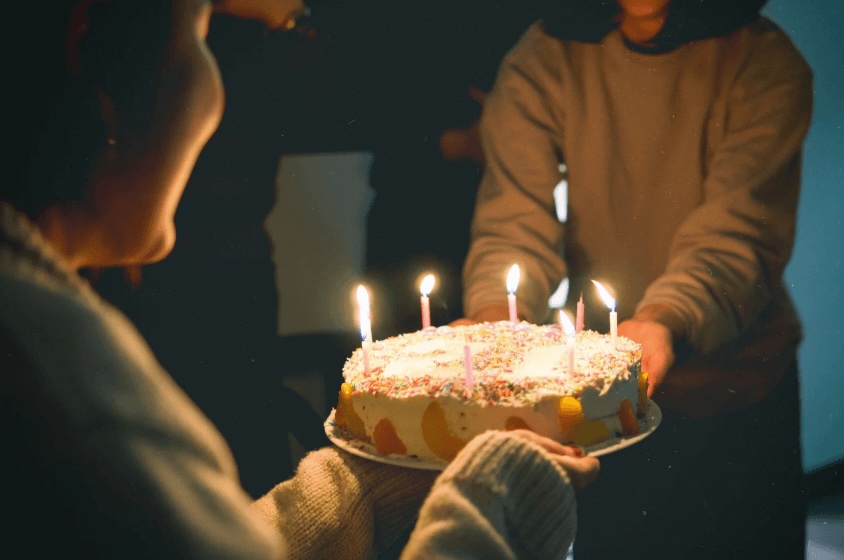Coping with Birthday Depression

For many people, birthdays are a time of joy, celebration, connection, and reflection. However, for some people, birthdays can bring feelings of sadness, anxiety, and even dread. This phenomenon, often referred to as “birthday depression,” “birthday blues,” or “birthday anxiety” is more common than many may realize. If you’ve ever felt unexpectedly down as your birthday approaches, you’re not alone. Let’s explore why birthdays can trigger these emotions and how to navigate them in a healthy way.
What is birthday depression?
Birthday depression is a term often used to describe feelings of sadness, anxiety, or emotional distress leading up to or on one’s birthday. It can manifest due to:
- Feeling overwhelmed by expectations: The pressure to have a perfect celebration or meet social or personal expectations can be stressful.
- Reflecting on age and life progress: Some people struggle with thoughts of aging, unmet goals, or feeling behind in life compared to where they want to be.
- Loneliness or social comparison: Seeing others celebrating lavish birthdays on social media may amplify feelings of loneliness or inadequacy.
- Past trauma or negative memories: For those who have experienced loss or difficult, disappointing birthdays in the past, the day may be a painful reminder.
- Fear of being forgotten or let down: Worries about friends or family forgetting or not acknowledging the day can trigger anxiety and sadness.
Understanding the root cause of these emotions is the first step in managing birthday depression and anxiety.
Recognizing the signs of birthday depression
It’s not uncommon to feel out of sorts as your birthday approaches, and understanding the signs your mind and body are communicating is an important step in addressing birthday depression. Common signs of birthday depression include:
- Sadness and low mood
- Disappointment or dissatisfaction
- Anxiety over expectations or past experiences
- Social withdrawal or avoiding celebrations
- Trouble sleeping or disrupted sleep patterns
You could also ask yourself:
- Are you feeling more irritable or withdrawn than usual?
- Do you react to birthday traditions or celebrations with anxiety or dread instead of excitement?
These shifts in your emotional state could signal an underlying issue or trauma response associated with your birthday.
Creating a birthday plan
If birthdays often bring sadness or stress, having a plan can help you take control of the day and reduce depression and anxiety. Here’s how to create a birthday plan that prioritizes your mental health:
- Decide what you want: Think about how you genuinely want to spend your birthday. Would you prefer a relaxing day, a small gathering, or an adventurous activity? Choose what aligns with your comfort and happiness, not external expectations.
- Set boundaries: If certain situations or interactions trigger stress, set boundaries in advance. For example, if social media comparison brings you down, consider taking a break from it. If large gatherings overwhelm you, opt for a more intimate celebration with close friends or family.
- Plan an enjoyable activity: Schedule an activity that brings you joy, whether it’s a nature walk, a movie night, a spa day, or trying something new. Doing something for yourself can make the day feel special and meaningful.
- Reach out to loved ones: If you enjoy socializing, let close friends or family know what would make you feel loved and appreciated. That could be a phone call, a small get-together, or a heartfelt message. Communicating your needs can help you feel more connected.
- Have a backup plan: Sometimes, things don’t go as expected. If plans fall through or emotions hit unexpectedly, have a backup activity in mind. For example, indulging in a favorite meal, watching a comfort movie, or having a game night.
- Practice self-care: Prioritize self-care throughout the day. This could mean exercise, engaging in a creative hobby, or simply allowing yourself to rest. The goal is to make the day about nourishing yourself emotionally and physically.
- Shift your perspective: Instead of focusing on what might go wrong, try to reframe your thoughts. View your birthday as a personal milestone rather than a social event, and celebrate it in a way that feels fulfilling to you.
When others don’t reciprocate birthday efforts
For some, one of the hardest parts of birthdays can be feeling like the people in your life don’t put in the same effort that you do for them. If you find yourself feeling disappointed, unimportant, or unappreciated, here are some ways to navigate those emotions:
- Acknowledge your feelings: It’s completely valid to feel hurt when people don’t reciprocate the effort you put into their birthdays. Instead of suppressing those emotions, allow yourself to process them. Journaling, talking to a trusted friend, or even just mentally reflecting on why it bothers you can help you gain clarity.
- Reframe your expectations: Not everyone expresses love in the same way. Some people may not place as much importance on birthdays, while others may not realize how much it means to you. Adjusting your expectations can help reduce disappointment.
- Communicate your needs: If certain people in your life consistently forget or minimize your birthday, consider having an open conversation about it. Let them know that recognition, even in a small way, matters to you. Often, people don’t realize how their actions (or inactions) impact others until it’s discussed.
- Focus on those who do show up for you: Instead of dwelling on who didn’t acknowledge your birthday, shift your focus to those who did. Even if it was just one person sending a message, appreciate the love and effort they put in.
- Celebrate yourself: Rather than relying on others to make the day special, take charge of your own happiness. Treat yourself to something you enjoy, whether that’s a shopping trip, a favorite meal, or an act of self-care.
- Set boundaries moving forward: If you feel like your effort in relationships isn’t being reciprocated, it’s okay to adjust your energy. Instead of overextending yourself for those who don’t do the same, focus on the people in your life who genuinely appreciate and celebrate you.
- Seek support: If feelings of disappointment or loneliness become overwhelming, consider talking to a therapist. They can help you work through your emotions and develop strategies for coping with unmet expectations in relationships.
Positive affirmations for boosting your birthday mood
Using positive affirmations can help shift your mindset and boost your mood on your birthday. Here are some affirmations to practice to remind yourself of your worth and value:
- “I am worthy of love and celebration.“
- “My birthday is a day to honor my journey and growth.“
- “I choose to celebrate myself in ways that bring me joy.“
- “I release the pressure of expectations and embrace the present moment.“
- “I am grateful for another year of life and opportunities.“
- “I deserve kindness, from myself and from others.“
- “I am loved, appreciated, and valued just as I am.“
Repeating these affirmations can help cultivate self-compassion and reduce birthday depression.
Takeaway
Birthday depression and anxiety are real struggles for many people. By understanding the root causes and taking proactive steps, you can redefine how you experience your birthday. Whether you choose to celebrate or simply take a day for yourself, what matters most is honoring your emotions and prioritizing your mental health.
If you’re struggling with overwhelming emotions or birthday depression, our network of therapists are here to support you. Talking to a therapist can help you navigate these feelings and develop healthy coping strategies. Your birthday is just one day, but your mental health matters every day. Go to findmytherapist.com to choose your therapist and schedule your first appointment online.
Ready to prioritize your mental health?
Great Lakes Psychology Group is here to help. With an extensive network of caring therapists available to meet online or in-person, we make it easy to find the right fit for your unique needs.



